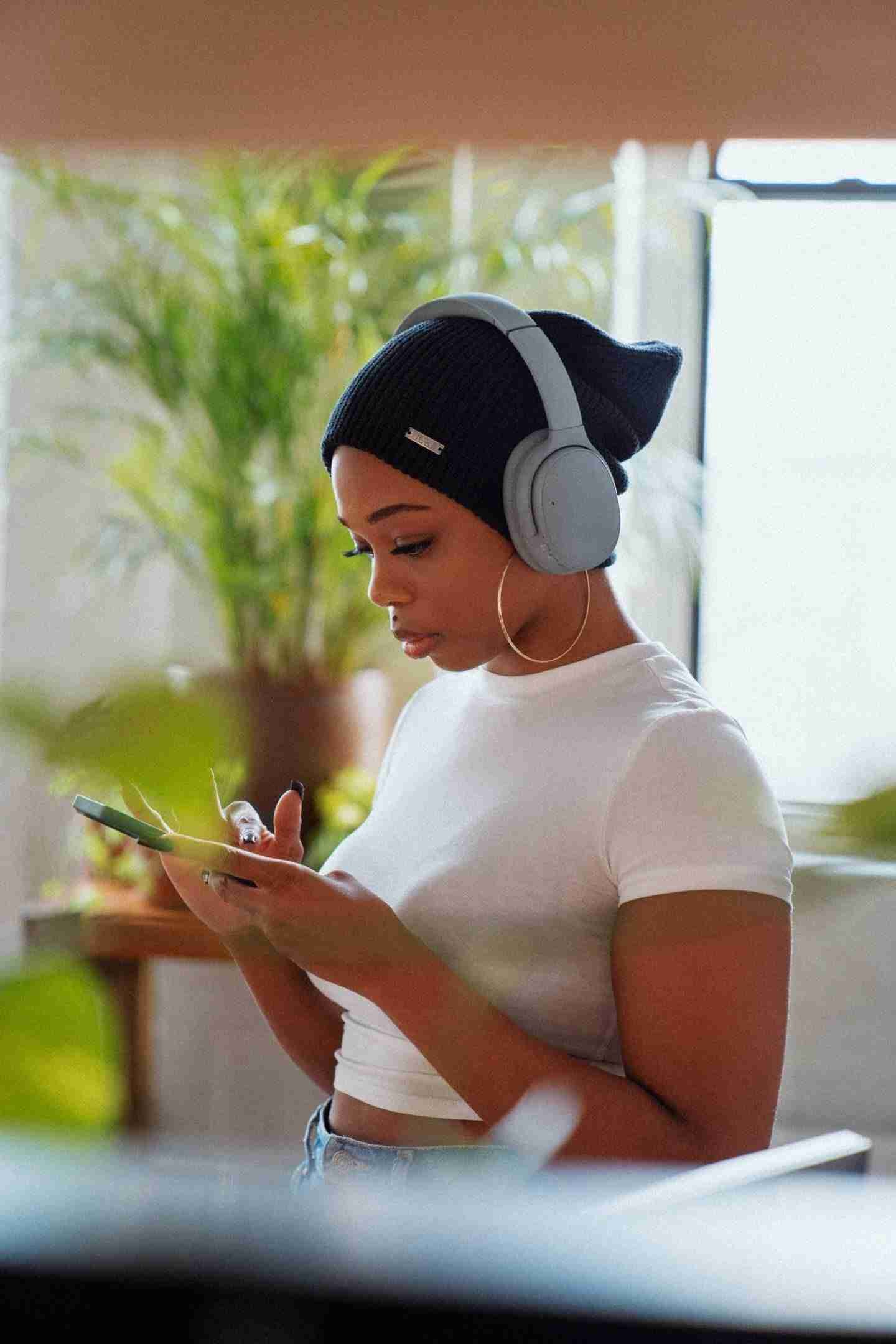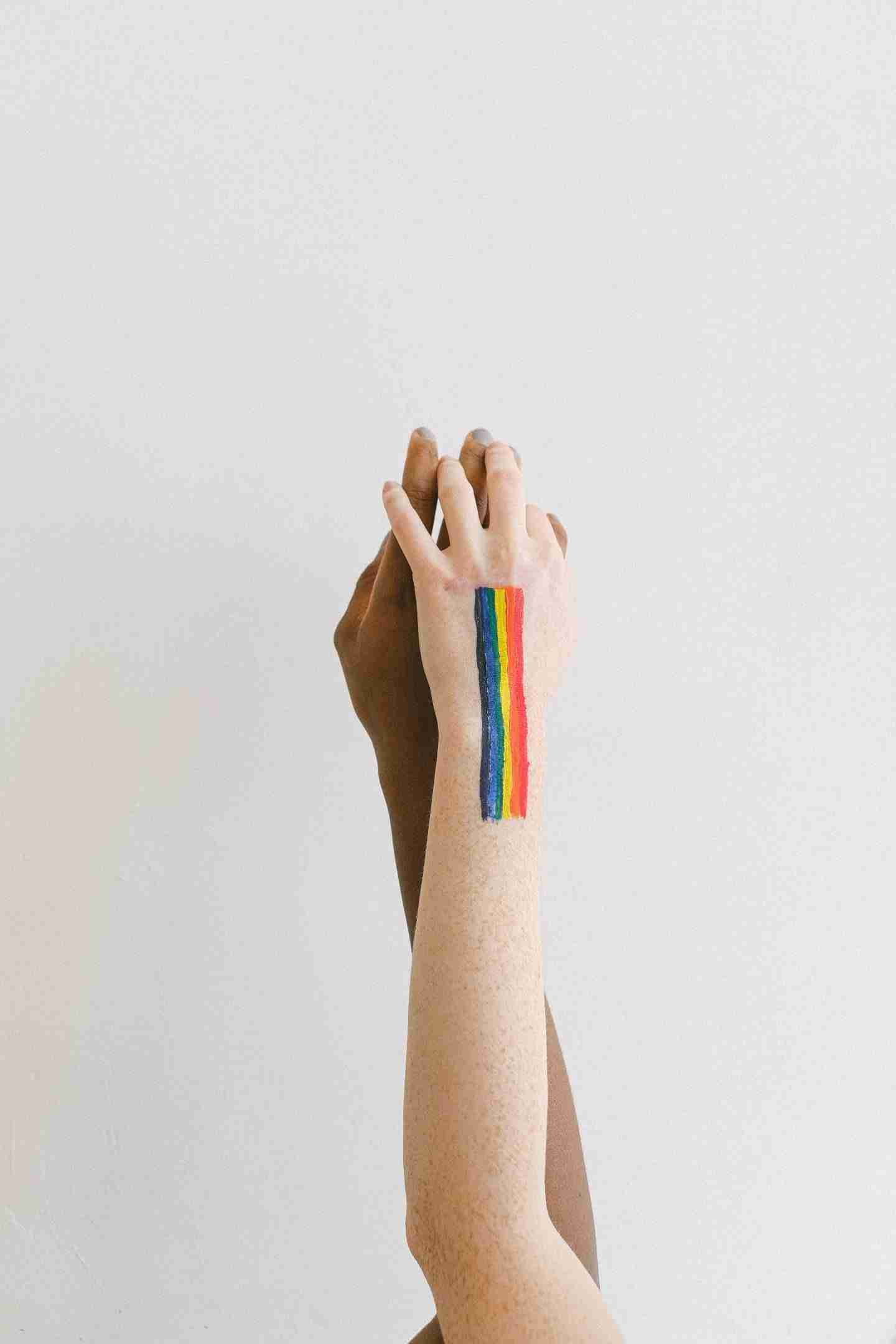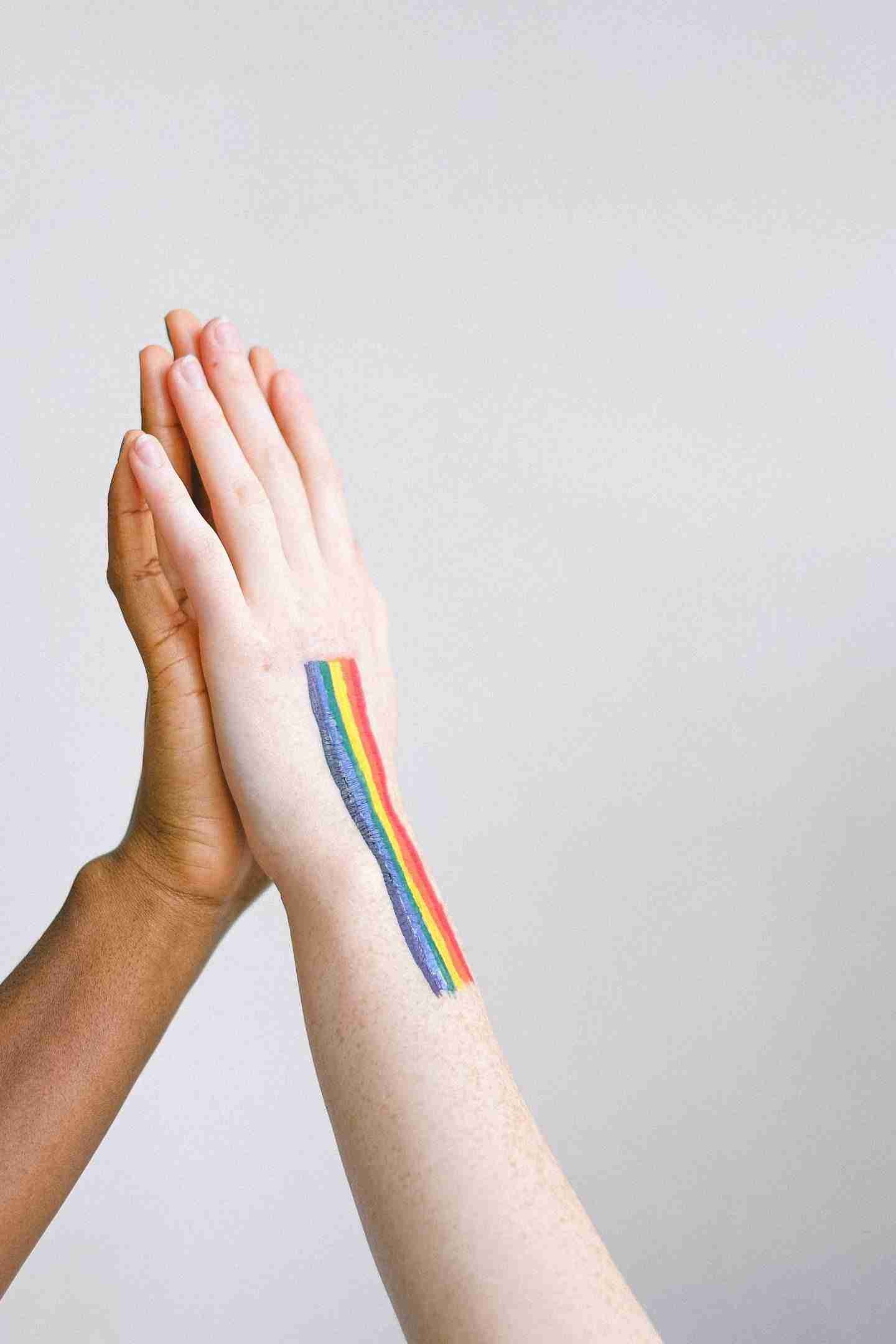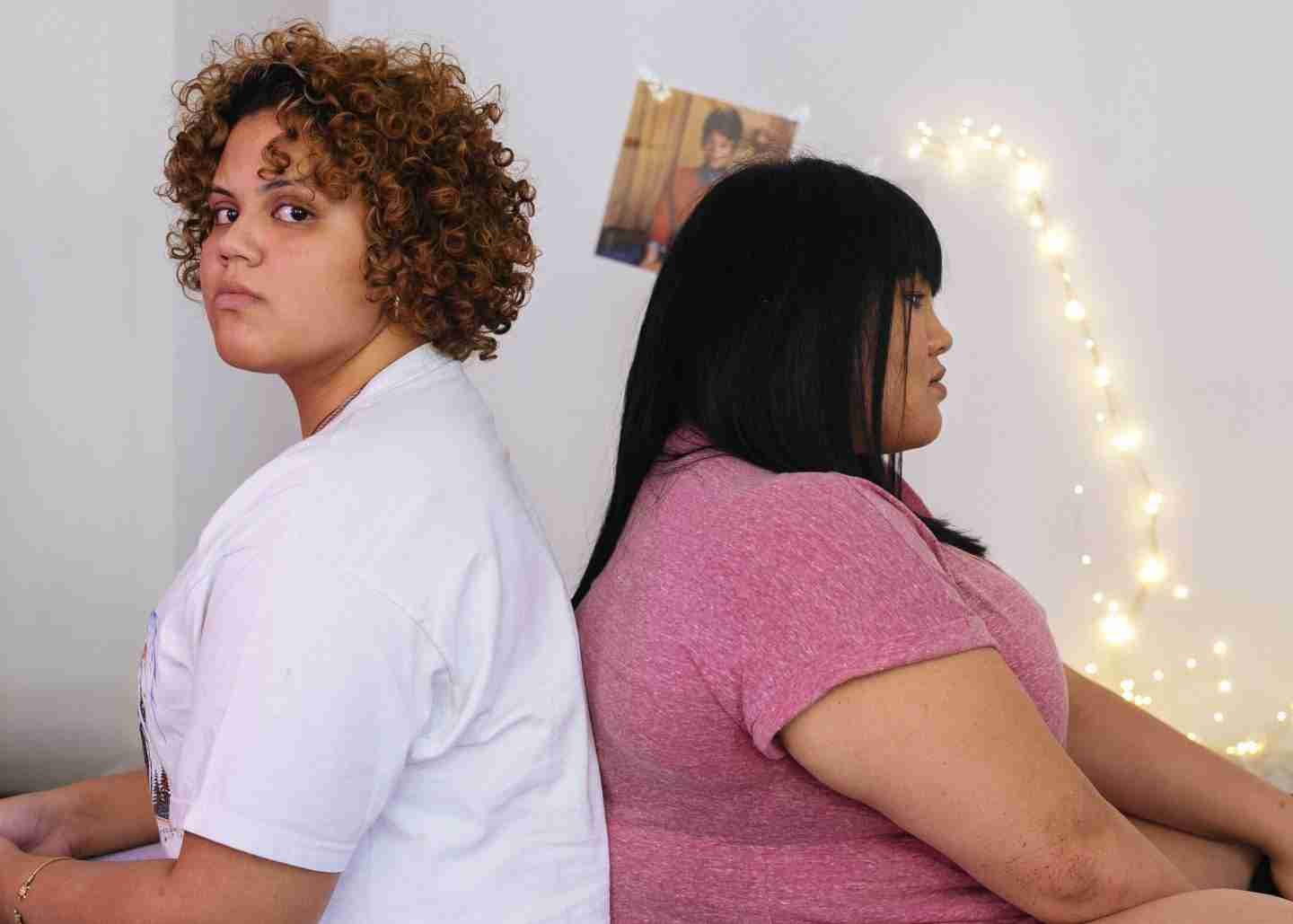Somewhere in Neukölln, I’m lazing – I mean, cat sitting – on a mustard sofa that is, without doubt, vintage. Surrounding me is a myriad of Queer zines, succulents, Lauren Hill records, and of course, cat toys. Let’s not dismiss, also, the many discarded flyers for an event exploring the links between ecstasy and phenomenal sex. This apartment, in its entirety, is a Sappho-vetted vision. Likewise, it’s, tragically not where I generally reside. Why then is it that I have entered this city-butch meets academic sapphic fantasy? Well, it’s thanks to no other than Lex, the app for Queer dating and friends.
Founded by Kell Rakowski, Lex – selected by the app store as a top Pride 2021 app – did not have a linear burgeoning. Back in 2014, Kell dawned an Instagram Page (@_h_e_r_s_t_o_r_y_) celebrating lesbian history and culture. Kell’s postings of snippets from the 80s and 90s lesbian erotica magazine On Our Backs were a significant hit among followers. What caught her audience’s attention, in particular, were the magazine’s infamous Personals ads.
Admirers of the account quickly began sending Kell their self-penned Personals. Awash with generationally updated though similarly witty double entendres and cultural references.
Kell received hundreds of personals a month, which she filed in a Google Doc and rifled through as often as she could. Despite this, the pro-bono side project was beginning to take over her life. Kell started another Instagram (@personals), this one specifically for the Personals ads. Still, the outlet had risen to a degree of popularity that Rakowski could not possibly field alone.
Demand considered Kell launched a Kickstarter. Her $40,000 goal was fast achieved, wholly through community donation. Following this, in November of 2019, Lex was born.
Nowadays, the Instagram is a mixture of Lex’ TikToks, reposts of noteworthy posts on the app, user testimonies and infographics on subjects such as pronoun etiquette and dating. It is, to be frank, more wholesome than a baby queer plastered in pride pins.
“Our founder Kell has this great TikTok where she’s going through Tinder. Tinder does have a lot of great gender options in its profiles. But when it comes to selecting who you wanna match with, you can only select men or women or both. The choices don’t correlate.”
Clad in a double-breasted blazer dress, Annika Davis, Lex’s Junior React Native Developer, is poking at a pumpkin-flavoured drink labelled Monica. Annika, who has a background in art history, initially spotted the job posting as an in-app ad.
The coupling of identity and career is a theme that has accompanied Annika throughout her career to date. From combining an art ardour with her job as a museum curator to bridging her bisexuality with her coding career, “It is pretty nice though.” She concedes. “I’m finally in a space where I’ll never have to act as the spokesperson for the entire LGBTQ+ community.”
Unlike other dating apps and social networks, Lex also doesn’t use the, primarily white, heterosexual and cis benefitting dating algorithms. It doesn’t use any, actually. Lex filters posts by location, time or keyword. The range of distance from which you will see posts can range from Zero km (i.e. none) to The World (.i.e. all). The suggested keywords are “butch,” “bottom” and “pizza.”
“What you see is what you get with Lex. It’s just a timeline feed of what everyone is posting. We don’t push content to certain groupings, it really is just like a digitised personals paper.”
Though a charming break from the world of swipes, Annika identifies this as an internal development qualm. “We have users who have been with us since it was Personals, who are very loyal to the format and really don’t want it to change. But then we also have new users who are wondering why is this so lo-fi?”
There are no images on the app itself, though Instagrams can be, and usually are, linked. As individuals once traced addresses and postbox codes, they now follow this link to establish Lex users – aesthetically. In my experience, however, IGs are browsed through as a way to confirm identity. The emphasis and majority of pre-friendship or dating chats remain conducted within the app that – invitingly for us anxious queers – does not enable read receipts.
The concept behind the Lex app does not spark uninhibited Queer joy among everyone, however. I’ve met many Queer folks whom I’ve converted to the app. I have also met many who looked at me, jaws agape, “No pictures?”
“But you can’t deny attraction is important.” My date, from Tinder, maintains. “I’m not” I respond, wondering how to express the difference between decentralising physical appearance and dismissing it, that chemistry, the kind that doesn’t immediately fade with satiation, depends on far more than a symmetrical face and well-dressed, implicitly thin body. That maybe – just maybe – we shouldn’t be treating people the same way we do an IKEA catalogue.
She sips her caffeine-infused cocktail pensively. On Tinder, I swiped right; on Lex, I might have written a missed connection, musing about short-haired butches and how they tie their shoes. “We’ve all had that moment where we saw a cutie at the market but we were too shy to say something.” Maayan Eldar, Lex’ product manager, assures me. I may have been better served taking further inspiration from Maayan, who admits that she once spent months drafting a personals post.
What my date and I are discussing, albeit inadvertently, is the love industry. Specifically, its current mindless state. Largely, Lex, in its inclusivity and its priorities, evades the late-capitalist-love-qualm that tends to turn us into unconscious consumers of bodies and faces. With investors and advisors such as Roxane Gay, Peanut founder Michelle Kennedy and the Bumble fund – Lex is transecting an industry. From the inside out, the landscape is being transformed and founders, investors, developers alike – are learning from each other, and their audiences.
With operating principles that champion confidence, queerness, scrappiness and binary-bashing behaviour, Lex is making space for a Queerer landscape, one utilised not by a compulsion to avoid endemic loneliness – but choice. It’s not for everyone. But for many of us, it’s dually a dream and a necessary revitaliser. It’s the mystery and opportunity it was, for a long time, impossible to have.
Lex gives me, and many Queers like me, the opportunity to be mindful. To learn how it is we can be.
Inbal appears on my screen, bewildered by their misbehaving air pods. After a subsequent few clicks and chair wiggles, their frown fast relaxes to a warm grin. They sit in a sweater vest, their arm tattoos battening. Inbal has a background in accessibility and is Lex’s Product Designer.
Like many Queers, when it comes to dating and community building, for Inbal, the internet is an indispensable resource. “Recently, I was talking to a friend about how our parents met, literally just through circumstance. On the one hand, it would be so cool. Still, I feel that I would still wonder what was out there. For better or for worse, I’ve met a lot of my partners on dating apps.”
When asked if they saw Lex as more of a social or a dating app, Inbal, though identifying that the Lex team certainly had no intentions of ever following a conventional swipe-driven dating model, deflects the simple binary,
“It’s really only in direct comparison to heterosexual orientated dating apps that the app’s ambiguity can seem strange. Romance, friendship and identity are all tied up within the Queer community. Lex could never be just a social or dating app.”
Being intentional, however, is not for everyone. Tinder is easy. It’s often transactional and often successful. I suppose this also; is a type of intentionality, a more linear one. Traditional dating models, i.e. your Tinders, Hinges, Bumbles, Taimis, tend to reify, transforming us into consumers of sex and relationships. How we choose to use any app comes down to personal choices but. It is undeniable, however, that at best, we are influenced by our environments, at worst, we become them.
We will always consume each other, our minds, hearts, ambitions, intelligence. This is how humans have worked, irregardless of the type of society we exist in. We benefit from each other, that is what community is. Doing this ethically, and equitably, is the point of contention.
On any given day on Lex, in Berlin, I see ads about literary events, acutely specific descriptions of sexual activities and love – to the same level of distinction. It’s Berlin and Queer, so kink and techno are pretty prominent, as is the occasional request for hallucinogenics. I have discovered new restaurants, an Orwellian art exhibition, learned how to apply for a PhD and, though I’m not sure it’ll ever come in all that useful, I now have an exceptional grasp on the French education system.
In Queer realities, we have stages, not time-stamps. Rarely do we grow up with ease, have crushes we can discuss with our friends and family, have our first relationship openly, break up with ease and repeat the process till we’re married, stable, reproducing. In lieu, we have confusion, shame, ecstasy, secrecy, passion, heartache, emotional and mental distress, a million dreams, missed connections, exes and far too many cats. We are not linear. Nor, if I were to take a guess, would many of us wish to be.
You can be 38, but in terms of realising your Queerness and what this means, you may find yourself in a similar place to a 17-year-old. While many of us find ourselves on the safer side of the pink line, the reality remains that the majority do not live in a Queer centred world, all of the time, at least. Authentic Queer spaces, whether digital or physical, allow us to melt into our Queerness, to feel its rhythms – our truth – not its profitability, sexualisation, danger, pain. It indulges our trust in something that we may never satisfactorily iterate, but – if we’re lucky, feel, more than once even. Lex facilitates a space in which self-realisation and consequent actualisation thrive.
Lex’ capacity to be so consciously and calmly anarchist perhaps spurred by its transcendence, easefully drawing past and future together. Somehow, curating a now in which we are present yet wholly connected, to the elders before us, to the babes rising.
A team of lover’s truly cannot lose.










